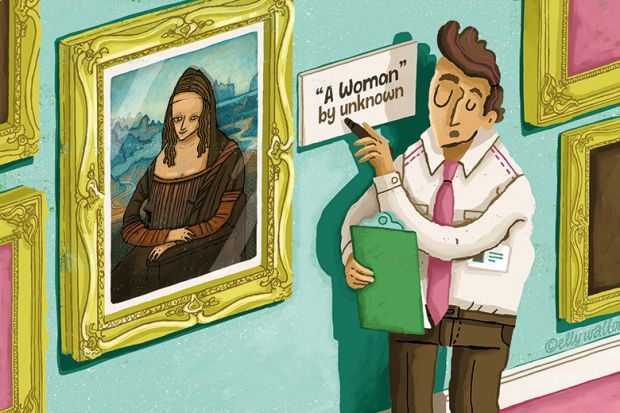“Handkerchiefs, please.”
“Come again?”
“Handkerchiefs.”
A blank response.
“Hankies. You know.”
“Sorry. I’m not with you.”
My wife was trying to make herself understood in Peter Jones, the formerly delightful department store in Chelsea. She stopped patronising it years ago, when it ceased to welcome customers’ dogs, but, finding herself short of a hanky in Sloane Square, she suspended her dog-lover’s principles. The young, evidently English woman who served her, in what was once a distinguished haberdashery, genuinely did not know what a handkerchief is.
“For blowing your nose,” my wife hazarded.
“Oh – paper tissues!”
Aghast at the thought of those tacky scraps that accumulate snottily inside handbags and shirtsleeves, my wife took a despairing leave.
She had barely recovered from the blow to her sense of the durability of civilisation when, the following day, she attended an expensive, privately commissioned gallery talk at the National Portrait Gallery. “This,” said the lecturer, waving flaccidly at Thomas Phillips’ famous study, “is somebody called Lord Byron.” The choice of words puzzled my wife until she discovered, chatting to her fellow museum visitors, that several of them, including an insurance executive, the head of a nationally renowned retailing division and a businesswoman with a law degree, had – until then – no idea who Byron was.
In the profession most Times Higher Education readers share we get used to encounters with ignorance. But when personnel do not know the terms of their business, while in Lord Byron’s homeland the beneficiaries of the most protracted and expensive form of education ever devised in the entire history of humankind have never heard of such an important and iconic poet, we should surely start seeking causes and cures.
Writers and speakers can no longer make the polite assumption that commonplace literary or historical allusions will be understood, even among highly educated audiences. Many academics are complicit in killing off the very notion of general knowledge, in the sense of a common stock of readily intelligible allusions. I recently withdrew a piece from a learned journal because “editorial policy” would have required me to insert prosopographical phrases to identify Franco and Gandhi. I daresay we may already have got to the point where “Shakespeare” is no longer an acceptable way of referring to “William Shakespeare (1564-1614), a formerly renowned English poet, playwright and actor-manager”. Even in the topmost echelons of academia, abysmal ignorance abides. A friend who is the Public Orator of a distinguished university told me what befell when he began a sermon with a reference to “a lawyer who once asked, ‘Who is my neighbour?’” “How interesting!” said the professor of law afterwards. “Who was the lawyer and what was the occasion?”
Common knowledge is part of a common language – a means of establishing understanding, forging community, and enhancing life. You cannot fully enjoy your work or your walks, your conversations or contacts, without seeing part, at least, of how they belong and interlock in the worlds of history and science. Every connection spotted, every resonance felt, every inscription translated, every reference grasped contributes to happiness. If you are ignorant, you can wallow in bovine contentment, but you can hardly be fulfilled.
Educators – including, I guess, almost the entire readership of THE – may feel we have failed. But culturally transforming circumstances and contexts beyond our power are really responsible. The value of learning cannot be computed in the dreary metrics of a society focused on production and consumption. Erudition is elitist; ignorance is egalitarian. We have extirpated every other kind of discrimination: now we are at work to eliminate prejudice against stupidity. In a world winnowed by market forces, if vocational competence is all most people want from school and university, they will get nothing better.
Academic specialisation, meanwhile, has fragmented the curriculum so that students gather data like the scattershot from a pea-shooter, with no sense of how beautifully it might fit together. Once revered, professors are now without honour in their own countries – and do not excite the outrage offered on behalf of the undubbed David Beckham. Or should I say, “David Robert Joseph Beckham (1975-), former Association Football professional and embodiment of the cult of celebrity, who was recently reported to have been rejected for a knighthood on account of his tax affairs”? Trivia have replaced knowledge as the fodder of game shows. Quiz fiends on the few programmes that still test canonical cultural knowledge are treated as amusing freaks, like Mr Memory in bygone vaudeville. An ignoramus, on the other hand, is admired and even elected to the most powerful office in the world.
I have heard the internet blamed for replacing knowledge with information; but in classical Athens the internet would have been full of philosophy. Some blame postmodernism: post-truth, there is nothing to know. Yet critical scepticism is the starting point of searching enquiry. When I was little, my own determination to educate myself arose from childish anger at the glib certainties my parents and teachers paraded. They were far more adept at concealing the truth – about a divorced aunt, say, or a queer cousin, or a syphilitic grandfather – than the relaxedly candid postmodern parents of today. We shall not restore the joys of common learning to the world by tinkering with technology or tweaking intellectual fashion. We need a revolution in values.
Felipe Fernández-Armesto is William P. Reynolds professor of history, University of Notre Dame in the US.
POSTSCRIPT:
Print headline: Sorry, they haven’t a clue
Register to continue
Why register?
- Registration is free and only takes a moment
- Once registered, you can read 3 articles a month
- Sign up for our newsletter
Subscribe
Or subscribe for unlimited access to:
- Unlimited access to news, views, insights & reviews
- Digital editions
- Digital access to THE’s university and college rankings analysis
Already registered or a current subscriber? Login




